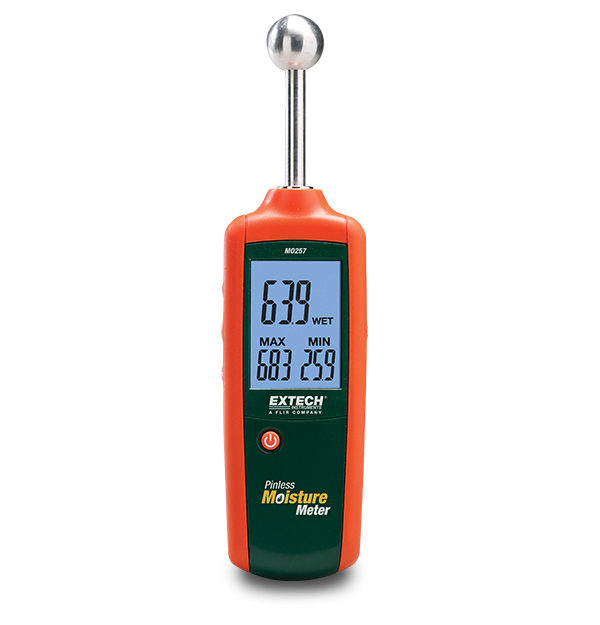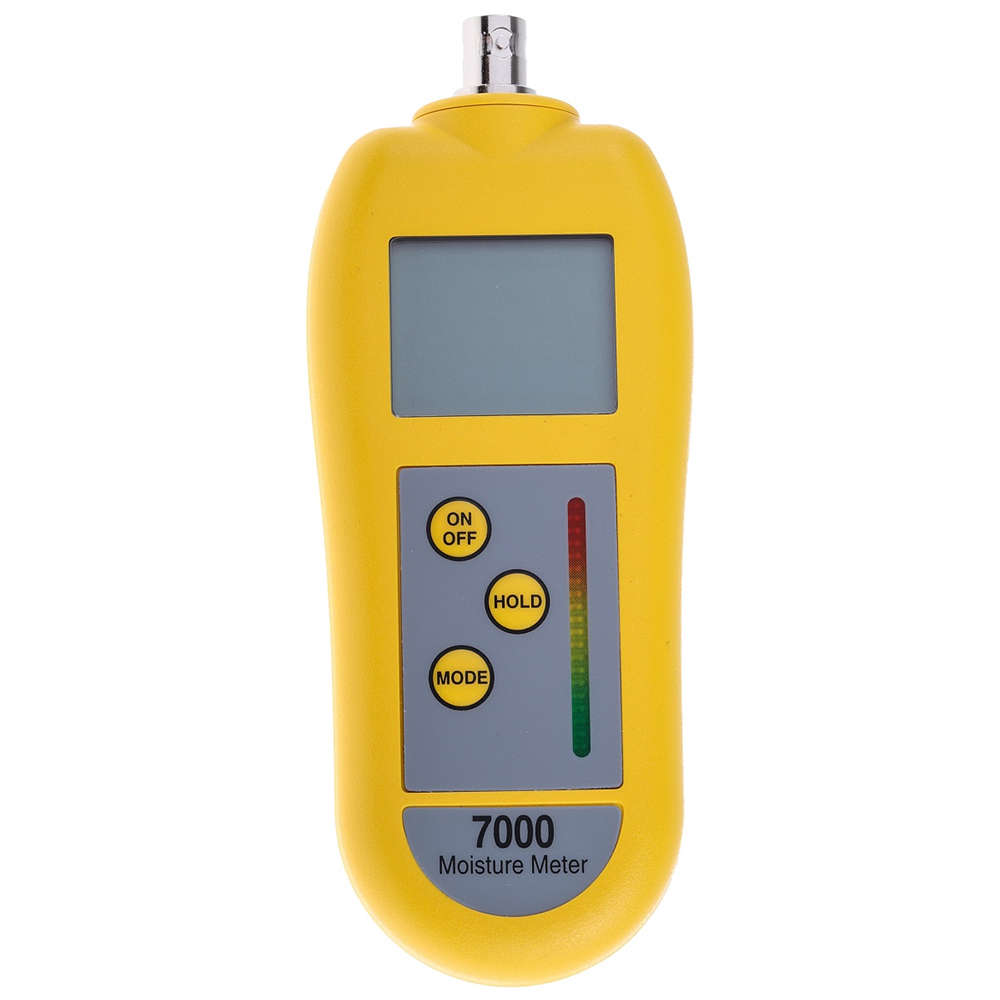How to Make Use Of a Moisture Meter to Discover Covert Water Damages in Your Residential property
How to Make Use Of a Moisture Meter to Discover Covert Water Damages in Your Residential property
Blog Article
The Ultimate Guide to Dampness Meters: A Comprehensive Overview and How They Can Conserve You Money
Dampness meters serve as vital devices in discovering and checking moisture web content in products, assisting in avoiding expensive problems and making certain the quality of products. Understanding the nuances of different kinds of dampness meters, their applications, and the possible cost-saving advantages they offer can be a game-changer for services and specialists alike.
Types of Dampness Meters
One common type is the pin-type moisture meter, which gauges the electric resistance in between 2 pins placed into a material. Pinless dampness meters, on the various other hand, use electromagnetic sensor plates to check a bigger area without triggering damage to the material's surface area.

Moreover, there are also specialty moisture meters made for certain products like soil, hay, or grain. These meters give precise moisture readings tailored to the one-of-a-kind properties of the product being tested. Infrared wetness meters measure the thermal residential properties of a material to establish its moisture web content non-invasively, making them useful for applications where pin or pinless meters might not be ideal. Comprehending the different sorts of moisture meters offered can aid markets pick the most ideal tool for their particular dampness measurement requirements.

Advantages of Using Wetness Meters
Wetness meters supply important advantages in precisely analyzing and monitoring moisture degrees in diverse products and settings (Moisture Meter). Among the main advantages of making use of dampness meters is the avoidance of prospective damages caused by excess wetness. By identifying and dealing with high dampness degrees early on, moisture meters aid to protect against mold and mildew growth, rot, and structural damage in structures, conserving both money and time on fixings. In addition, wetness meters aid in guaranteeing the quality of materials during building or production processes. By properly measuring dampness web content, these tools assist preserve the stability of wood, drywall, concrete, and other products, reducing the risk of issues or failures.
Additionally, using dampness meters can result in enhanced power performance. By identifying locations with high moisture levels, such as leaks or inadequate insulation, changes can be made to enhance energy conservation and lower energy prices. In farming setups, dampness meters play an essential role in maximizing crop yields by making it possible for farmers to check dirt wetness levels and make informed irrigation choices. Generally, the advantages of using moisture meters cover throughout numerous industries, providing cost-efficient remedies and promoting much better quality assurance techniques.
Just How to Choose the Right Moisture Meter
Selecting the suitable wetness meter entails taking into consideration key aspects such as product compatibility, dimension range, and calibration accuracy. When selecting a wetness meter, it's vital to ensure that the meter is suitable for the particular material you will be testing. Different materials have varying electrical properties that can affect dampness analyses, so picking a meter designed for your product is crucial for accurate outcomes. In addition, consider the measurement series of the moisture meter. Ensure that the meter can spot moisture degrees within the array needed for your applications. Calibration precision is an additional essential variable to remember. Select a wetness meter with trustworthy calibration to make certain consistent and accurate readings. Some meters might require routine calibration adjustments, so recognizing the calibration procedure is necessary. By meticulously reviewing these aspects, you can select a moisture meter that meets your demands and supplies exact wetness measurements for your tasks.
Proper Methods for Dampness Meter Usage

Expense Savings Through Dampness Meter Applications
Exactly how can the critical usage of dampness meters lead to considerable price savings throughout various sectors? In the agriculture market, dampness meters aid in establishing the optimal time for collecting crops, stopping excess or over-drying wetness that can influence the final product's top quality.
Likewise, in construction, wetness meters aid prevent expensive problems by spotting wetness degrees in structure products, such as wood or concrete, which can imp source result in architectural concerns if not attended to without delay. By identifying problem locations at an early stage, service providers can take corrective steps to prevent considerable repairs or replacements, eventually conserving time and cash.
Furthermore, in the food processing market, wetness meters are necessary for checking item quality and guaranteeing compliance with security guidelines. By properly gauging dampness web content in food, manufacturers can protect against putridity, preserve freshness, and decrease waste, causing substantial price savings. Generally, the tactical application of moisture find here meters is a useful investment that can bring about significant expense reductions and improved performance throughout different markets.
Final Thought
In conclusion, wetness meters are valuable devices for determining and identifying wetness degrees in various products. By utilizing the best dampness meter and complying with correct techniques, individuals can effectively stop pricey damages triggered by excess wetness.
Moisture meters serve as crucial tools in finding and keeping track of moisture material in products, aiding in stopping pricey damages and guaranteeing the top quality of items. Infrared moisture meters measure the thermal properties of a important source material to identify its wetness web content non-invasively, making them useful for applications where pin or pinless meters may not be appropriate.Wetness meters use invaluable advantages in accurately examining and keeping an eye on wetness levels in diverse materials and atmospheres. In agricultural setups, wetness meters play a crucial role in optimizing crop yields by enabling farmers to keep track of soil moisture degrees and make educated watering choices.In verdict, dampness meters are beneficial devices for measuring and discovering wetness levels in various materials.
Report this page